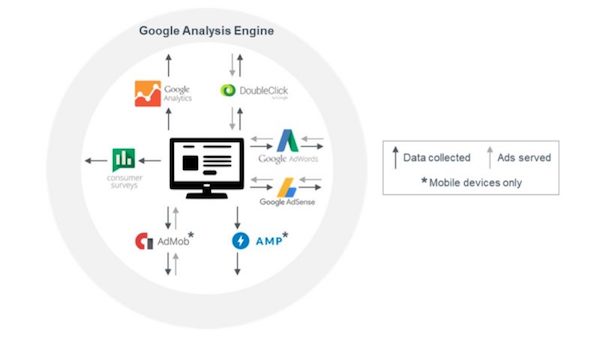Google is back in the news again today with yet another report highlighting just how the search and advertising company handles the data it collects from users and the devices that they use.
Following on from a recent Associated Press report which detailed how Google collected location-based data even after users may have believed they had disabled the feature, the latest report explains how Google devices send up to ten times more data to the company’s servers than an iPhone does to Apple’s.

The report, courtesy of new research conducted by C. Schmidt, a computer science professor at Vanderbilt University, makes for pretty grim reading if you are at all concerned about how Google handles data.
For example, during testing, it was noted that an Android phone with Chrome running in the background communicated with Google’s servers 340 times in a 24-hour period. For comparison, an iPhone with Safari open but again idle meant that no discernible data was sent to Google at all. It was also noted that an idle Android phone running Chrome sends 50 times as many requests for data to remote servers when compared to an iPhone. With all requests and data transmissions taken into account, Schmidt noted that Android phones communicate with Google almost ten times more often than an iPhone would phone home to Apple.

Things get worse when looking at the anonymous identifiers that are used to collect advertising data based on apps and websites used. According to the report, Google can link this data with user-identifiable data by using a device-level identifier that is then passed to its servers. The same goes for DoubleClick cookies which tracks a user’s path through the internet and between websites. In this case, the information is handed to Google whenever a user moves from a third-party web page to one of its own.
None of this reads well for Google and although it’s debatable as to whether any of it is a surprise, it absolutely feeds into Apple’s narrative that it handles users and their privacy much more seriously than Google.
(via: MacRumors)
You may also like to check out:
- Download iOS 12 Beta 9 IPSW Links, OTA And Beta 8 Of macOS 10.14, watchOS 5, tvOS 12
- Jailbreak iOS 11.4.1 / 11.3.1: iOS 12 Beta 9 SEP Is Compatible With Electra Jailbreak Supported Firmware
- Download: Android 9 Pie Factory Images, OTA For Pixel, Essential Phone Released
- Download iOS 11.4.1 Final IPSW Links, OTA Update For iPhone And iPad
- Download iOS 12 Beta 9 Configuration Profile File Without Developer Account
- Download iOS 12 Beta 9 IPSW Links & Install On iPhone X, 8, 7, Plus, 6s, 6, SE, 5s, iPad, iPod [Tutorial]
You can follow us on Twitter, add us to your circle on Google+ or like our Facebook page to keep yourself updated on all the latest from Microsoft, Google, Apple and the Web.

